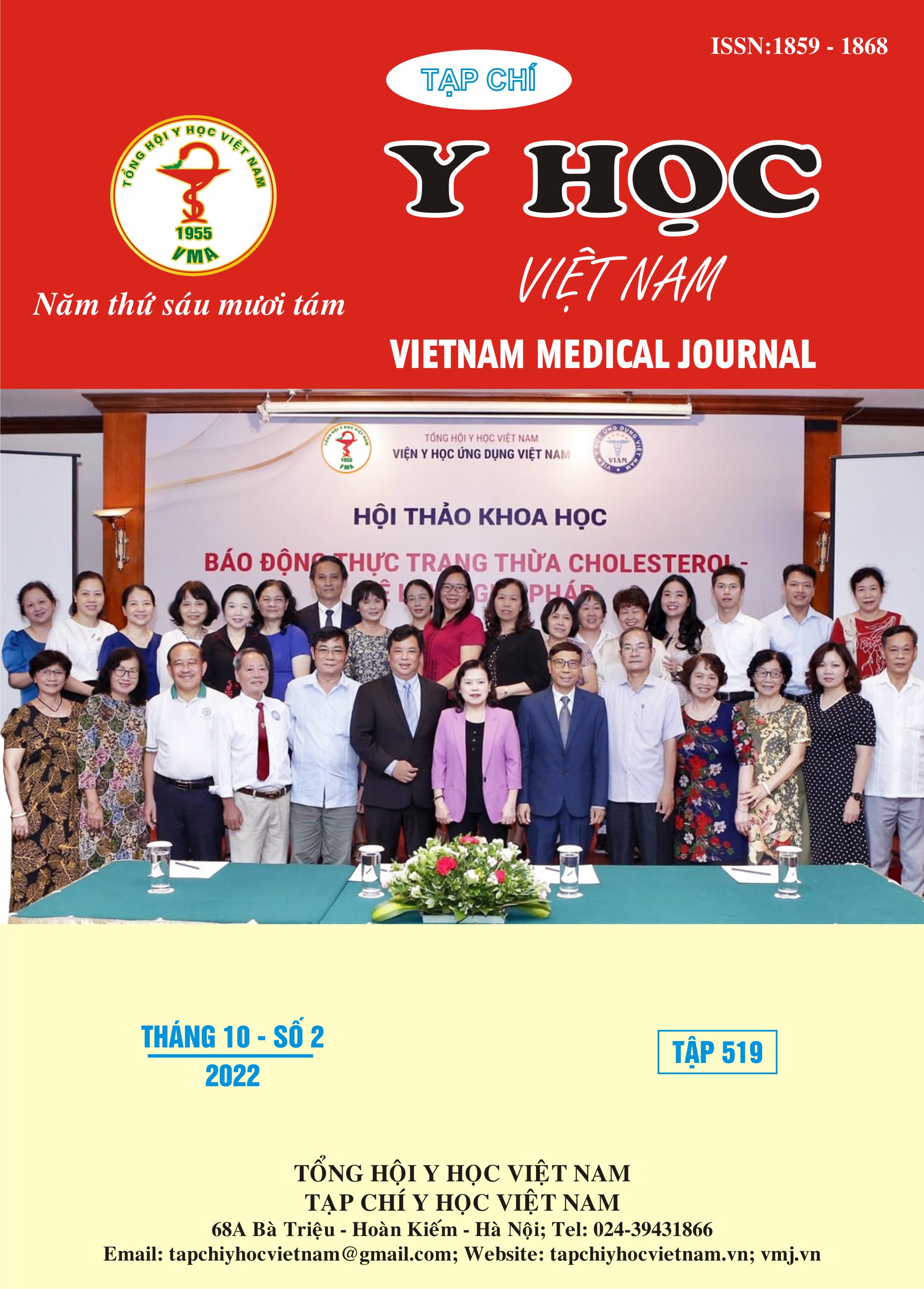EFFICACY OF NEOADJUVANT THERAPY WITH TCH REGIMEN IN STAGE II AND III BREAST CANCER
Main Article Content
Abstract
Objectives: Our study aims to describe the clinical and paraclinical characteristics of stage II, III breast cancer patients and evaluate the treatment outcomes and toxicity of neoadjuvant therapy with TCH regimen in this group. Patients and Methods: Retrospective and prospective, descriptive study on 33 patients with stage II, III breast cancer, were treated with neoadjuvant TCH regimen at National Cancer Hospital. Results: 51,5% patients with cardiovascular disease. The majority of them were in stage III (93,9%). All patients’s histology were invasive carcinoma of no special type (NST) and 78,8% was in grade II. patients with hormone receptor-negative breast cancer were 75,8%. After 6 cycles treatment, the clinical response was 93,9%. All of our patients were moved to modified radical mastectomy after neoadjuvant chemotherapy. The pathological complete response (pCR) rate was 57,6%. Patients with grade II histology or negative hormone receptor has pCR rate higher than the other. Most adverse events were manageable and tolerable. The Myelotoxicity and Hepatotoxicity were mild and moderate (grade 1, 2). No patient was discontinued treatment or reduced doses because of cardiotoxicity. Conclusion: TCH regimen in stage II or III breast cancer neoadjuvant setting gives a high pCR rate with tolerable tocxicity.
Article Details
Keywords
Breast cancer, neoadjuvant chemotherapy, HER2-positive breast cancer, TCH regimen
References
2. Paridaens R., Biganzoli L., Bruning P. và cộng sự. (2000). Paclitaxel versus doxorubicin as first-line single-agent chemotherapy for metastatic breast cancer: a European Organization for Research and Treatment of Cancer Randomized Study with cross-over. Journal of clinical oncology, 18(4), 724–724.
3. Qin A., Thompson C.L., và Silverman P. (2015). Predictors of late-onset heart failure in breast cancer patients treated with doxorubicin. Journal of Cancer Survivorship, 9(2), 252–259.
4. Tiwari S.R., Mishra P., Raska P. và cộng sự. (2016). Retrospective study of the efficacy and safety of neoadjuvant docetaxel, carboplatin, trastuzumab/pertuzumab (TCH-P) in nonmetastatic HER2-positive breast cancer. Breast cancer research and treatment, 158(1), 189–193.
5. Tranum B.L., McDonald B., Thigpen T. và cộng sự. (1982). Adriamycin combinations in advanced breast cancer: A southwest oncology group study. Cancer, 49(5), 835–839.
6. Untch M., Fasching P.A., Konecny G.E. và cộng sự. (2011). Pathologic complete response after neoadjuvant chemotherapy plus trastuzumab predicts favorable survival in human epidermal growth factor receptor 2–overexpressing breast cancer: results from the TECHNO trial of the AGO and GBG study groups. Journal of Clinical Oncology, 29(25), 3351–3357.
7. Untch M., Rezai M., Loibl S. và cộng sự. (2010). Neoadjuvant treatment with trastuzumab in HER2-positive breast cancer: results from the GeparQuattro study. Journal of Clinical Oncology, 28(12), 2024–2031.
8. Van Ramshorst M.S., van Werkhoven E., Mandjes I.A. và cộng sự. (2017). A phase III trial of neoadjuvant chemotherapy with or without anthracyclines in the presence of dual HER2-blockade for HER2+ breast cancer: The TRAIN-2 study (BOOG 2012-03).


